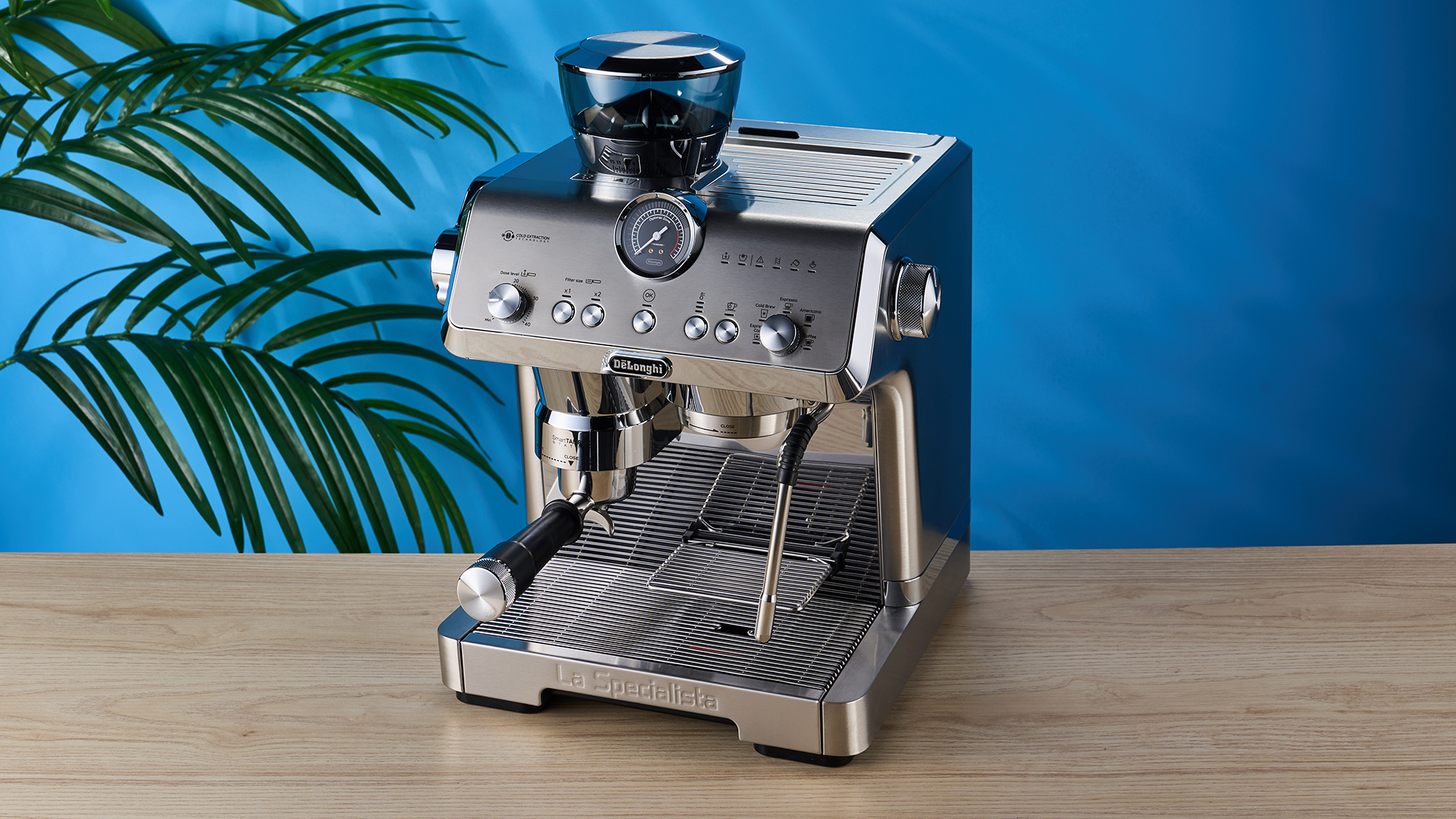
When you’re looking to buy one of the best espresso machines, what do you look for? Style? Pizzazz? A powerful steam wand? A built-in grinder? Supreme espresso extraction?
Boy, do I have good news for you. The new De’Longhi La Specialista Opera bean-to-cup espresso machine has all of that. The 19 bar Thermoblock machine is customizable enough that you can perfect your shot style, whether that’s lungo or ristretto. The smooth yet powerful steam wand can texture milk for cappuccinos, macchiatos, and flat whites with ease.
At $899, this machine is a considerable amount of money. There’s no sugar-coating it — but most bean-to-cup machines will set you back just under (or just over, in some cases) a grand. But is it better than cheaper machines, like the KitchenAid Semi-Automatic Espresso Machine with Grinder? Find out in this De’Longhi La Specialista Opera review.
De'Longhi La Specialista Opera: Cheat sheet
- Who is it for? Coffee fans wanting to upgrade from an espresso machine to a bean-to-cup
- What does it do well? You can craft a versatile drink with the cold brew setting and manual extraction time button along with a powerful steam wand for decadent latte art
- What are its weaknesses? There’s honestly not a lot wrong with this machine other than bean-to-cup machines are always objectively expensive and the steam arm is a little bit low
- What should you use it for? Making cafe-quality espresso from the comfort of your own home
De'Longhi La Specialista Opera: Specs
De'Longhi La Specialista Opera review: Price & availability
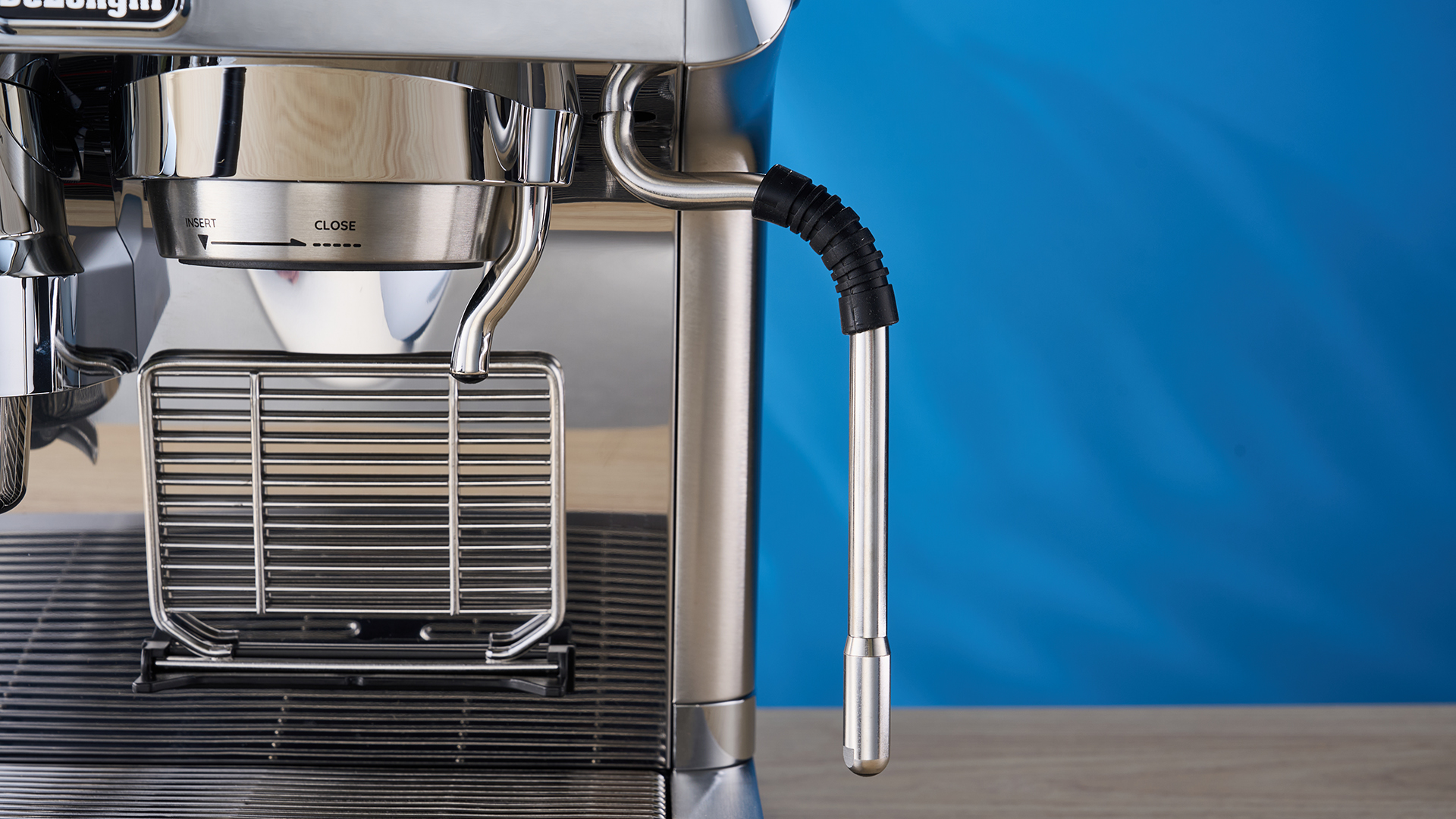
Although not the most expensive bean-to-cup machine I’ve seen, the La Specialista Opera is still an objectively large amount of money. In the U.S., you’re looking at $899 from Amazon, and in the U.K., it’s £799 direct from De’Longhi.
The Opera is the third most advanced machine in the La Specialista collection — in ascending order of complexity, there’s the Arte ($699), Arte Evo ($699), Opera, and Maestro ($1,199). Arte and Arte Evo don’t have the smart tamping system of the Opera and Maestro, and the Maestro has a dual boiler, can pull iced espresso shots, and auto-foam milk. If you don’t have need for an auto milk frother but you want to experience auto-tamping, the Opera is for you.
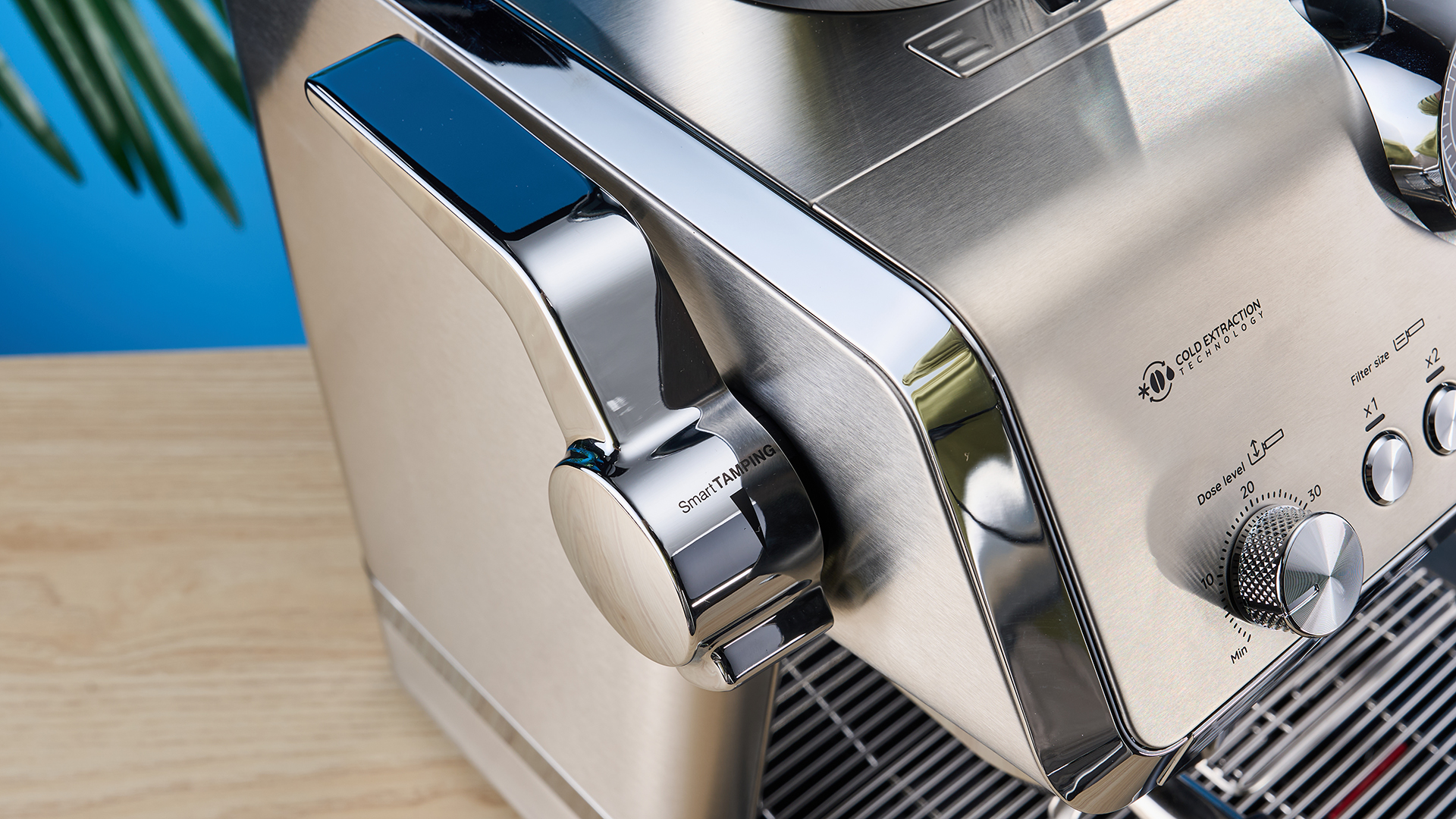
Elsewhere, you’re looking at around the same price point for a similarly-advanced machine. The Smeg Bean-to-Cup machine, the EGF03, is $1,100 at Amazon U.S. and the KitchenAid Semi-Automatic Espresso Machine with Burr Grinder is $799 at Amazon U.S.. When you consider the price of a decent grinder ($200 minimum) and the price of a decent basic espresso machine ($300 minimum), $899 isn’t that much more.
De'Longhi La Specialista Opera review: Design
The Opera doesn’t look unlike other espresso machines I’ve used. The silver chrome finish is similar to that of the other machines in the La Specialista range, and similar to the silver version of the KitchenAid Semi Automatic Espresso Machine. This is a pretty bulky machine — but what bean-to-cup isn’t? — and takes up considerable space (15 x 17 inches to be specific) on your countertop. The display and buttons of the machine are clean and well-designed: there’s a button for changing espresso heat, a knob for choosing what type of espresso you want, and buttons for grinding.
The main difference between the Maestro and the Opera is that the Maestro has a dual-boiler system. This means you can pull espresso and steam milk simultaneously, whereas on the Opera, the Thermoblock system means you have to do one and then the other. While this doesn’t pose an issue during regular coffee making, if you want to make multiple drinks in quick succession, you’ll need a dual boiler.
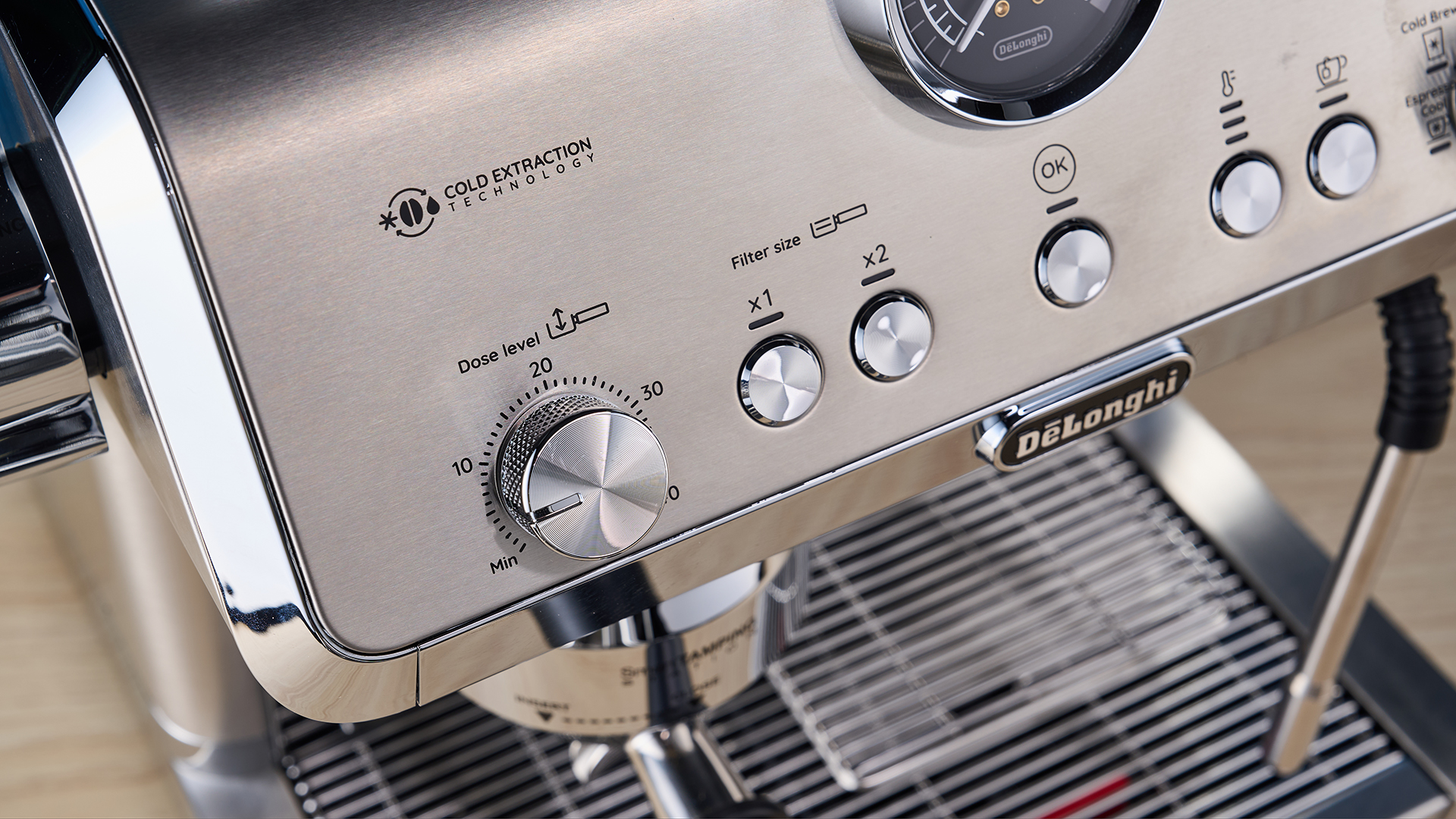
The La Specialista Opera comes with a knock box (for your used grounds), a vacuum sealed container (for your between-use coffee beans), and 6 double-walled glasses for drinking with style. I love this touch. It shows that De’Longhi really cares about its users’ experience. I’m not sure if this is just placebo, but my iced latte tasted wonderful out of the 270ml cappuccino glasses.
De'Longhi La Specialista Opera review: Grinder
The conical burr grinder has 15 coarseness settings. With my light-roast Ethiopian beans, I found the best grind setting to be ‘4’. I can imagine with darker beans you’ll probably want a coarser grind. There’s a single and double shot doser button and a knob on the top you can select your grind with. You’ll need to experiment with grinding and dosing to get your ideal amount, as with any new machine.
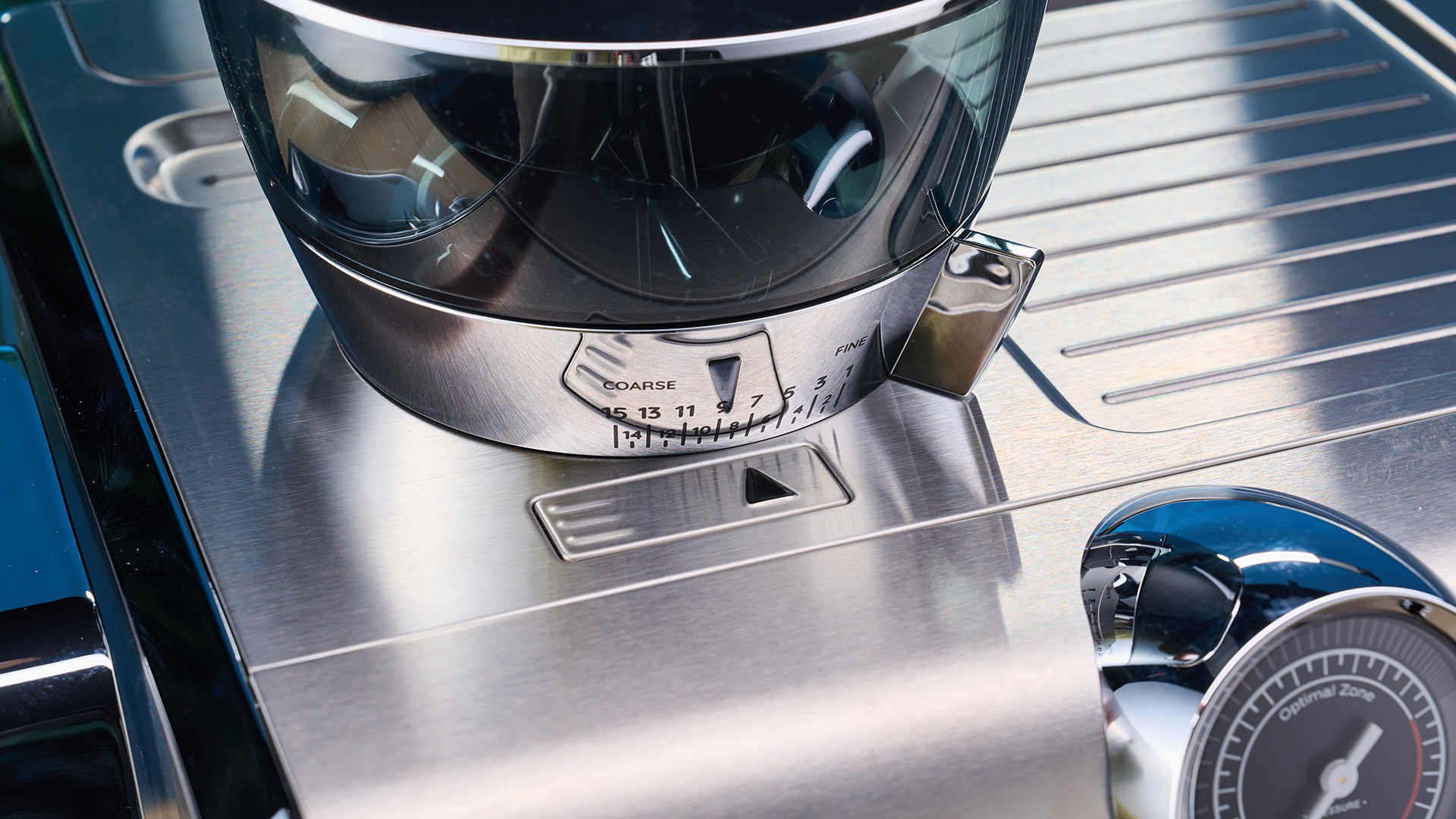
One of my favorite things about this machine is the smart tamping arm, which is an integrated tamper inside the machine itself. You don’t need to remove your group handle and tamp on your countertop, and therefore, you create much less mess. Now that I’ve used this, I’m not sure I can ever go back.
The grinder topped out at 76 dB during testing, which is about the same as the KitchenAid Semi-Automatic and the Smeg EGF03. The grinder produced consistent, even coffee, and is adjustable enough that you will always be able to find the optimal grind texture.
De'Longhi La Specialista Opera review: Espresso
The Opera is compatible with both single-walled (non-pressurized) and dual-walled (pressurized) portafilters. I tested the machine with the single-walled filter baskets, as these tend to produce a more nuanced, whole flavor.
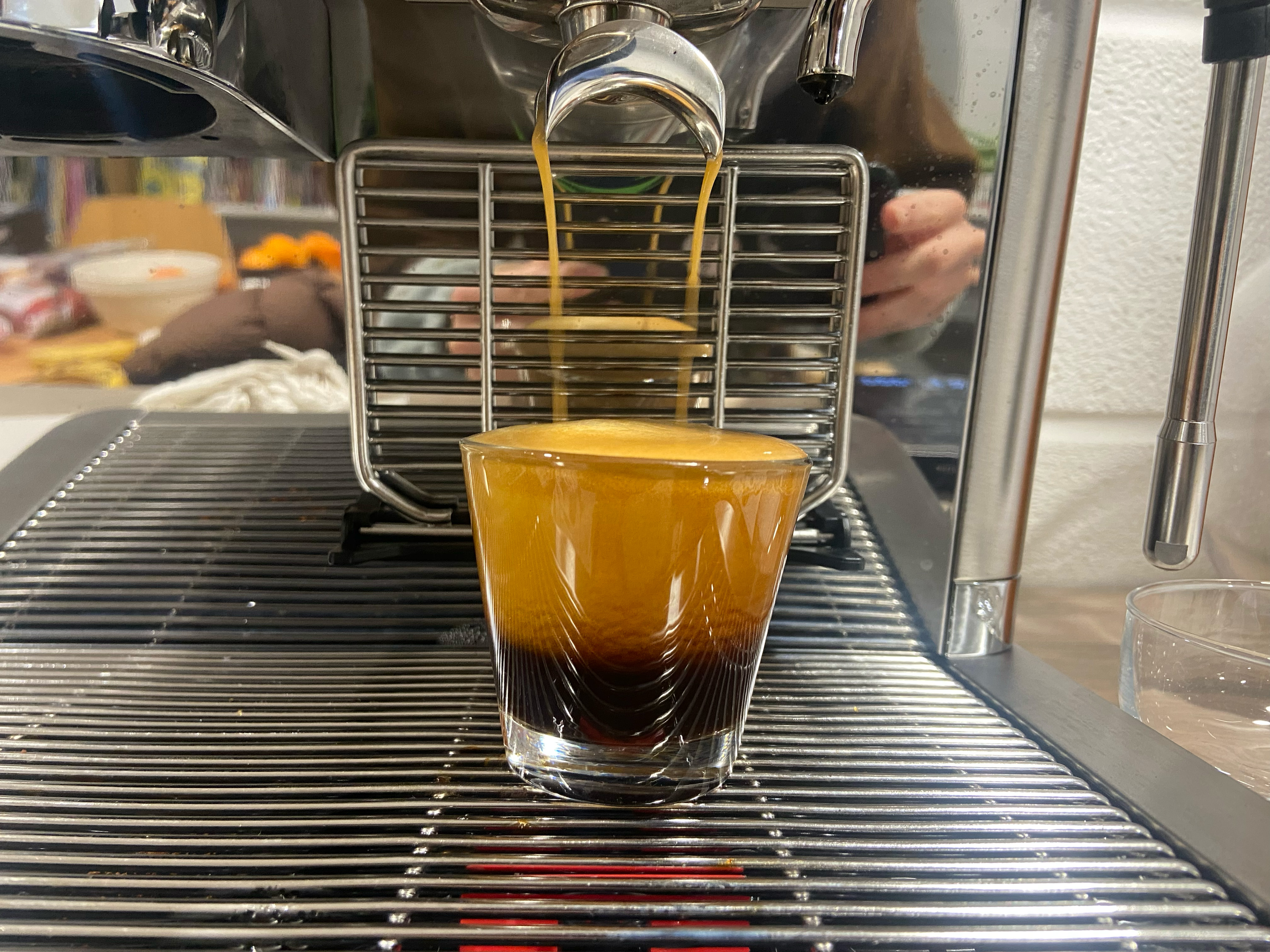
This is a double shot single-walled portafilter basket with 18.7g of finely ground light roast coffee. On the double shot extraction setting, it poured 64.9g of espresso. This is a ratio of 1:3, which is a ‘lungo’ (long) espresso. To get this ratio down to the sweet spot of 1:2, I manually stopped and started the extraction with the machine’s ‘OK’ button using my Maestri House coffee scale and timer. The espresso extracted with a fluffy, thick crema, and a layered, balanced flavor. I practically inhaled the series of oat milk flat whites I made with this machine, much to the chagrin of my nervous system.
As this machine has a cold brew and cool espresso setting, I wanted to make some iced drinks too. The cold brew setting takes about five minutes: with a double shot of coffee (17.9g of ground beans), it produced 167.6g (5.9 ounces) of cold brew. I’m a cold brew fanatic during the summer months, so I was excited to drink this.
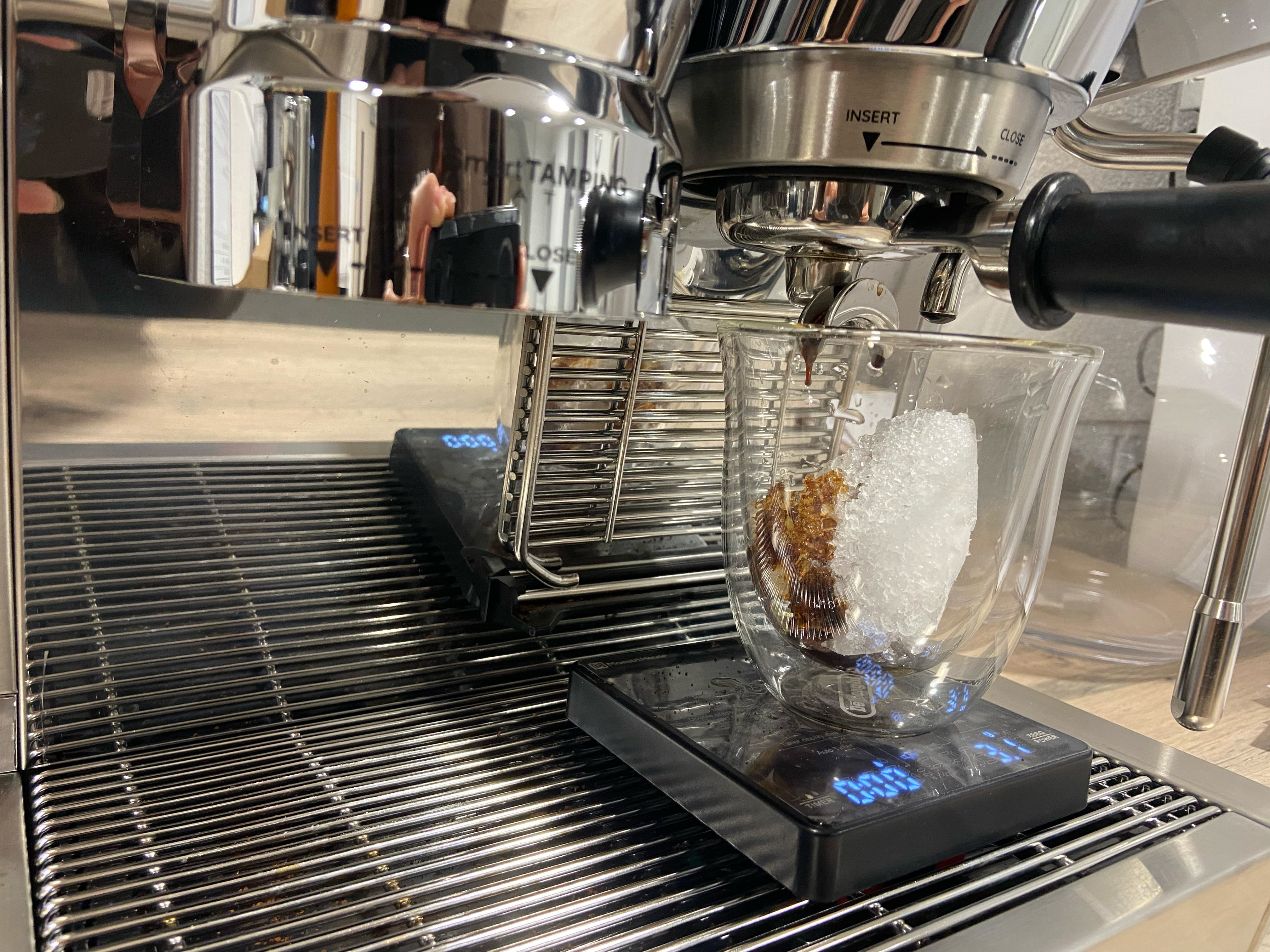
It was alright, but it didn’t make me desperate to drink more. I used light roast Ethiopian beans for this cold brew and the flavor was delicate but a little nutty. I think I'll stick with the traditional long steeping time associated with making cold brew, but if you’re short on time, this is a good option to have.
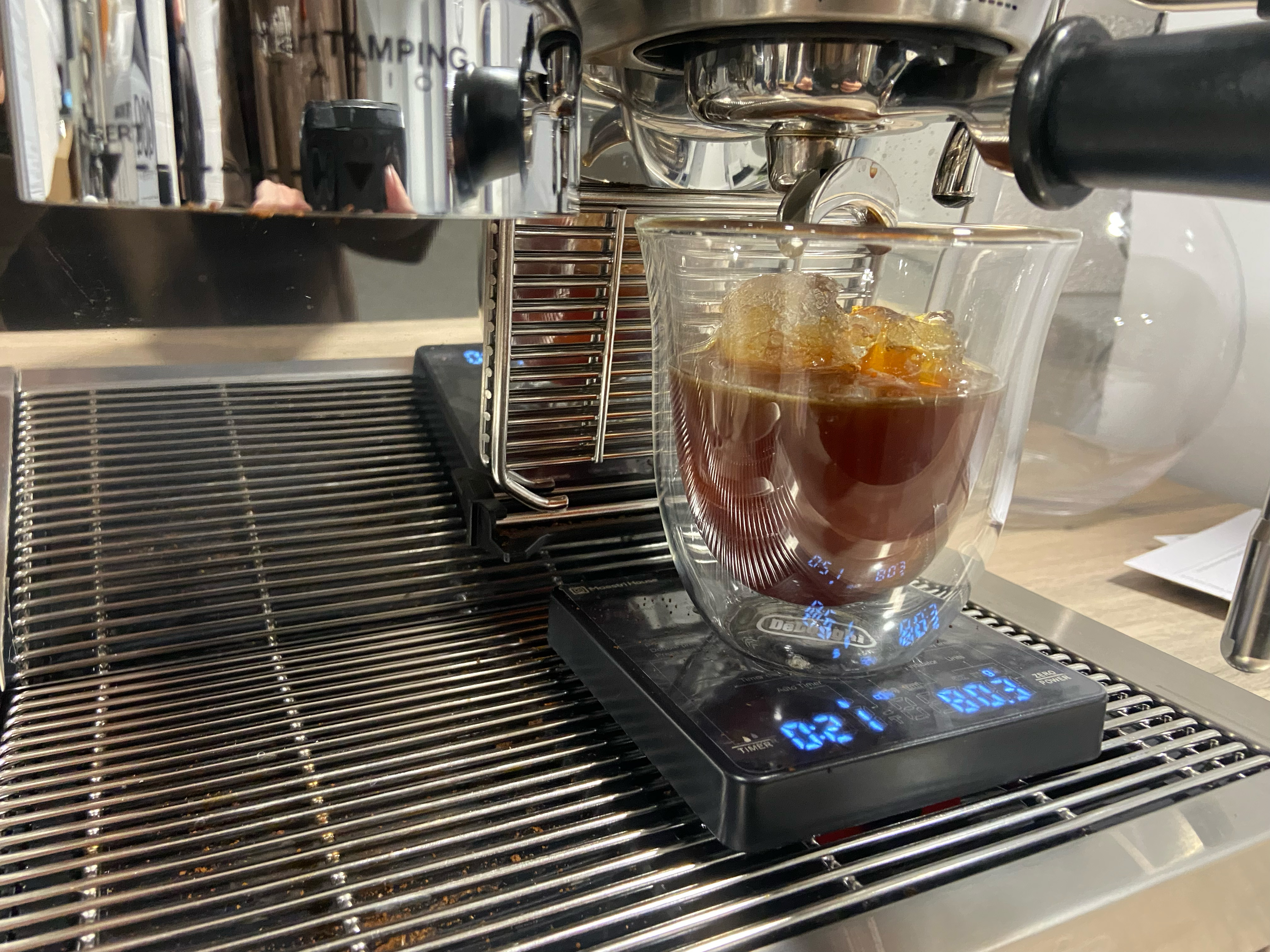
The cool espresso setting makes 80.1g of espresso with a 21 second brewing time, which looks like it wouldn’t taste good, but the room-temperature espresso shot was actually delicious over ice with a splash of oat milk.
De'Longhi La Specialista Opera review: Milk
The Opera’s steam wand benefits from the machine’s 19 bar pressure, and boy, can you tell. This steam wand is as powerful, or not more so, than that of the KitchenAid Semi-Automatic and the Smeg EGF03. I was able to create delicious, perfectly-textured microfoam (if I do say so myself) and even get some latte art. It's not my best work, but that's my fault rather than the machine's.
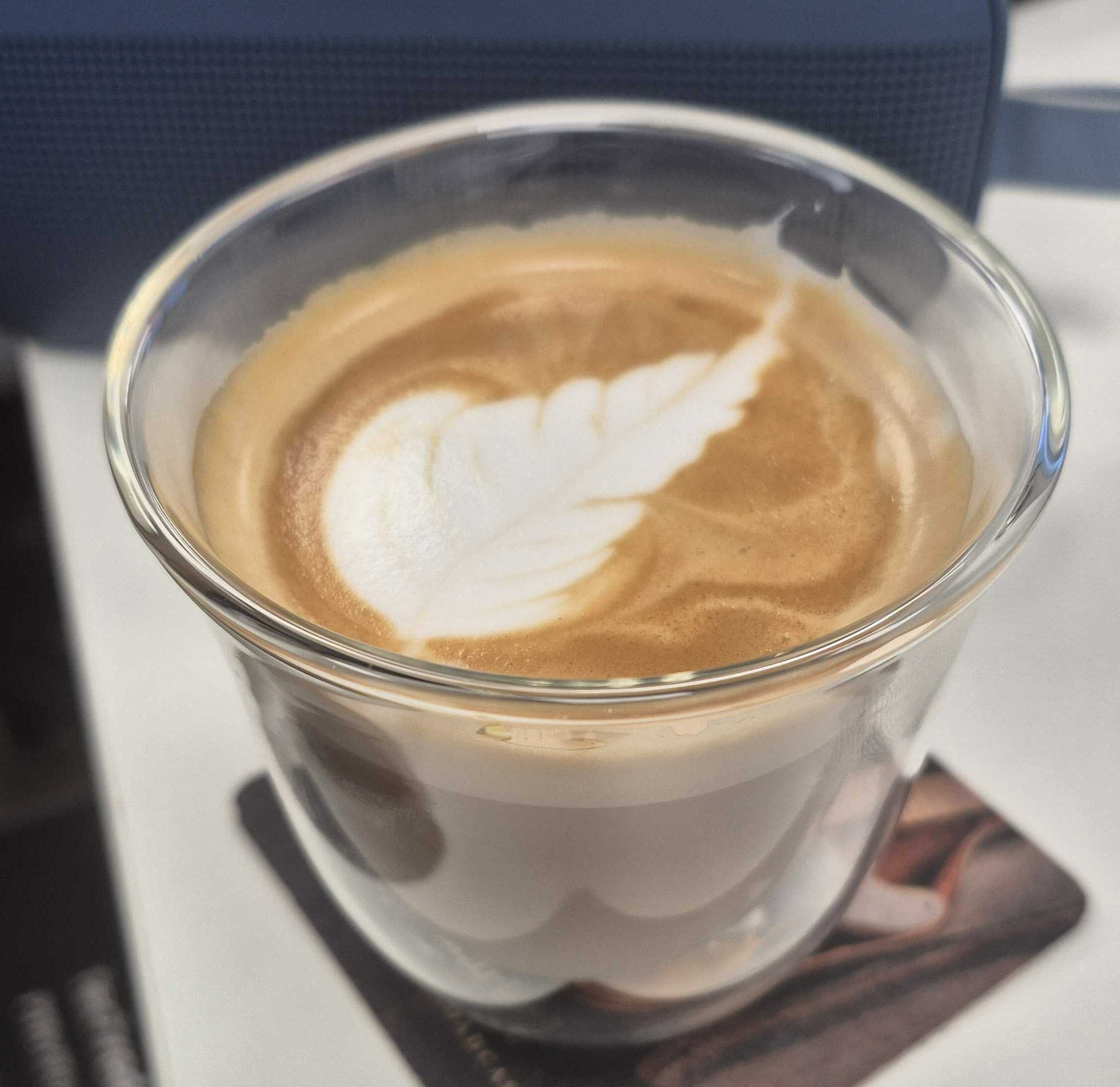
The best thing about the steam wand is that even during steaming, the exterior of the wand stays cool. This means you can adjust the angle and move the steam wand without risking burning yourself. I’ve never come across a coffee machine with this feature, and now that I have, I’m not sure I can ever go back.
The only feature of the steam wand that I’m not obsessed with is how low it lies. While not the end of the world, it’s quite annoying when you’re trying to move quickly and the wand knocks against the side of the machine and group handle.
De'Longhi La Specialista Opera review: Storage & maintenance
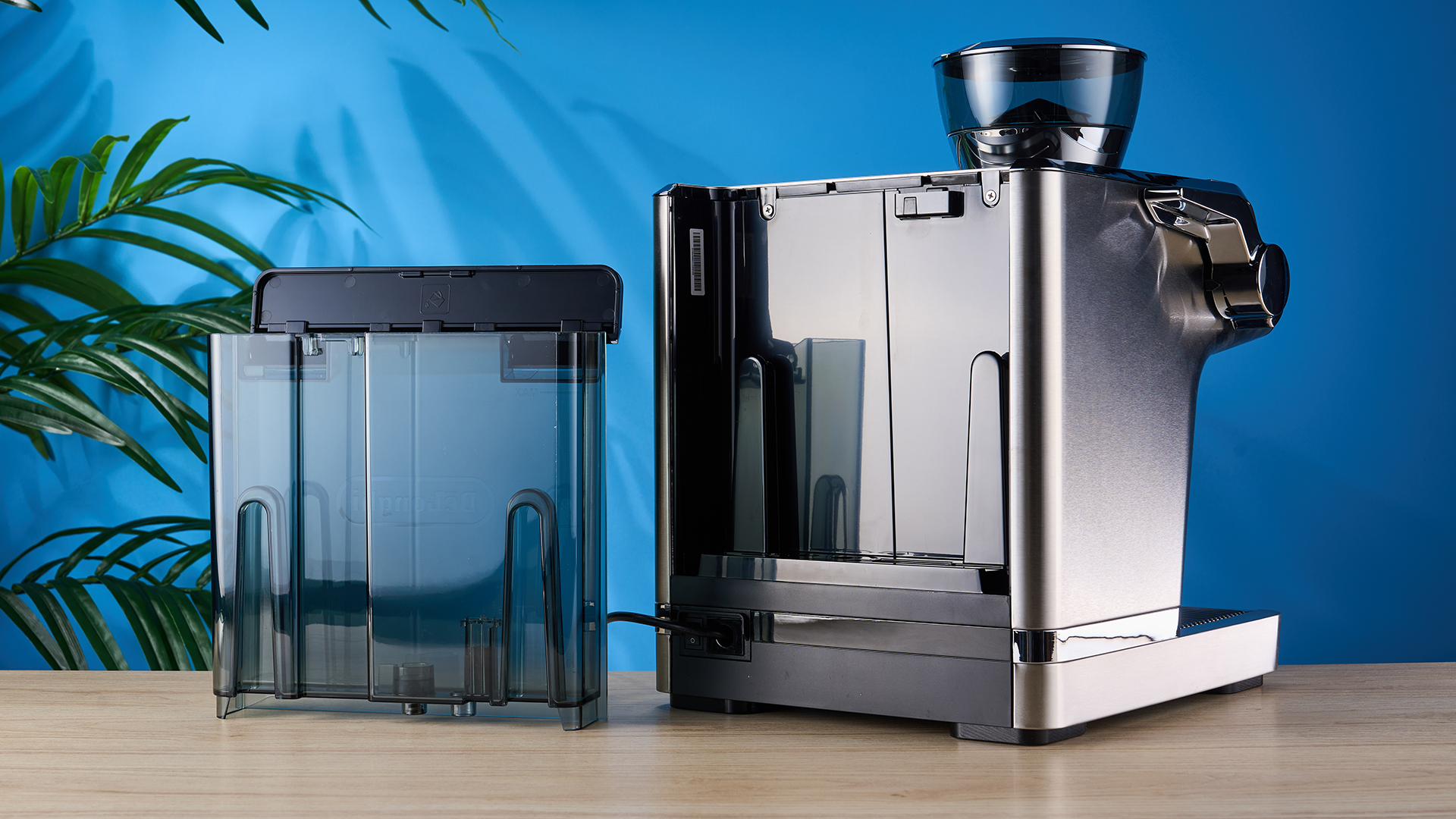
There’s no sugarcoating it: this is a big machine. It’s 17 x 15 inches, so will take up a considerable amount of room in your kitchen. While it’s a space killer, it’s a pretty space killer. There’s nothing unappealing about the chrome design and the sleek finishes, so I think this would be a fantastic kitchen accessory. You can keep your spare portafilters in the pull-out tray underneath the drip tray in between uses.
De’Longhi provides you with cleaning and maintenance accessories. You get a pipe cleaner, a descaling liquid, and a coffee machine cleaner. The machine will alert you when it’s craving a descale, and you should clean the portafilters, milk jugs, and steam wand after every single use.
De'Longhi La Specialista Opera review: How does it compare?
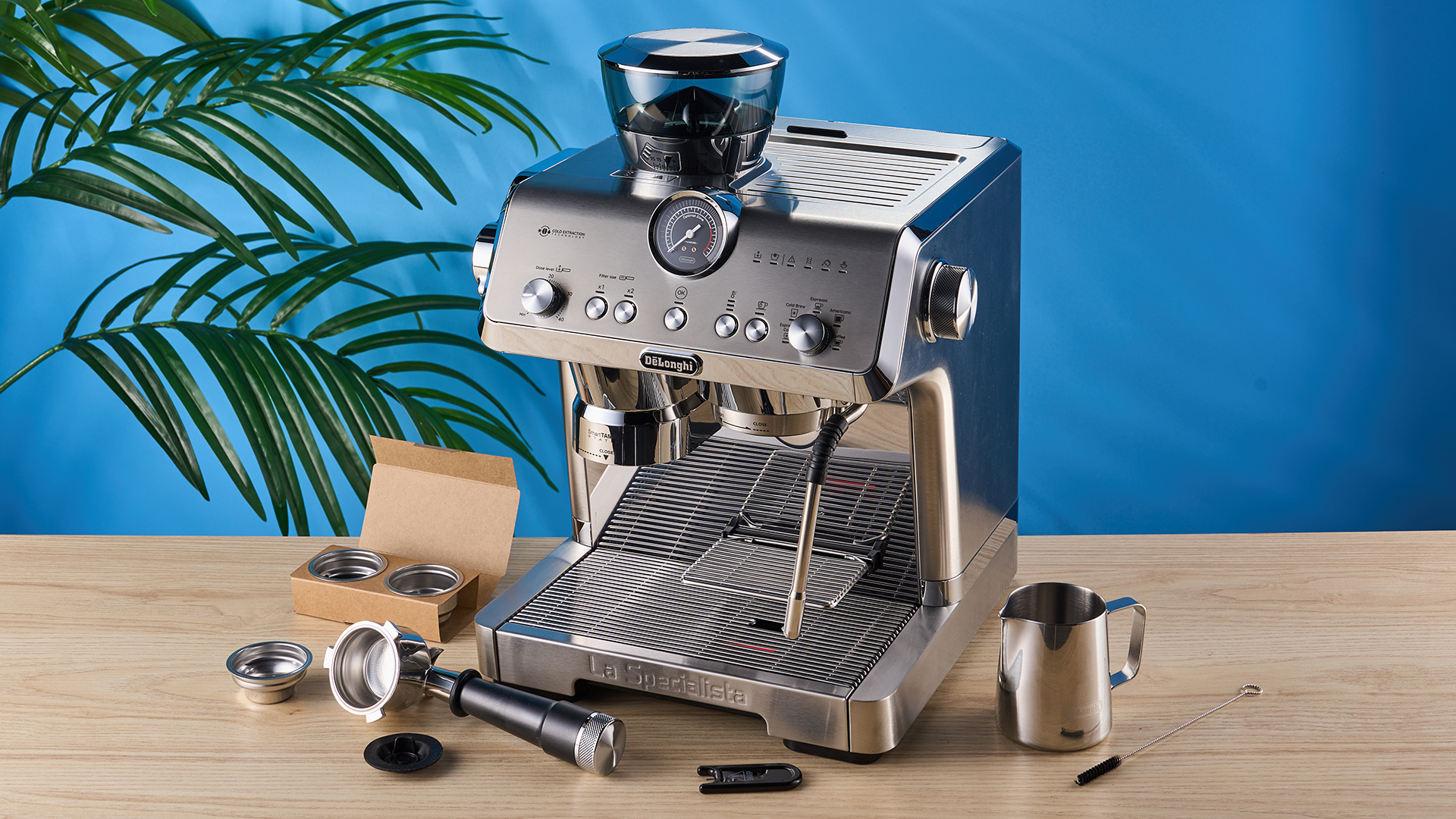
When you compare the Opera to both other De’Longhis and other bean-to-cup machines, there’s not a massive difference — except for the cold brew and cool espresso settings. Our top-rated espresso machine, the Breville Barista Express ($749), has no cool espresso setting, but there’s nothing stopping you from simply pulling espresso shots over ice. The KitchenAid Semi-Automatic Espresso Machine with Burr Grinder lacks a cold espresso setting, too, but again — nothing stopping you from pulling shots over ice. I found that the Opera was better at creating fluffy crema in single-walled portafilters than the KitchenAid.
The smart tamping feature on the Opera is a game-changer, though. This aspect might put off coffee purists, but I really enjoyed it. It makes clean-up a lot easier on the day-to-day, but you’ll obviously have to get in there with a brush every now and then to keep things fresh.
De'Longhi La Specialista Opera review: Verdict
I can’t really fault this machine. Besides its low-hanging steam wand that sometimes gets in the way of the group handle, there’s absolutely nothing I dislike about the La Specialista Opera. The smart tamping feature is a game changer, the single-walled portafilters pull creamy, robust, delicate espresso, and the steam wand is powerful enough to craft technically-perfect microfoam.
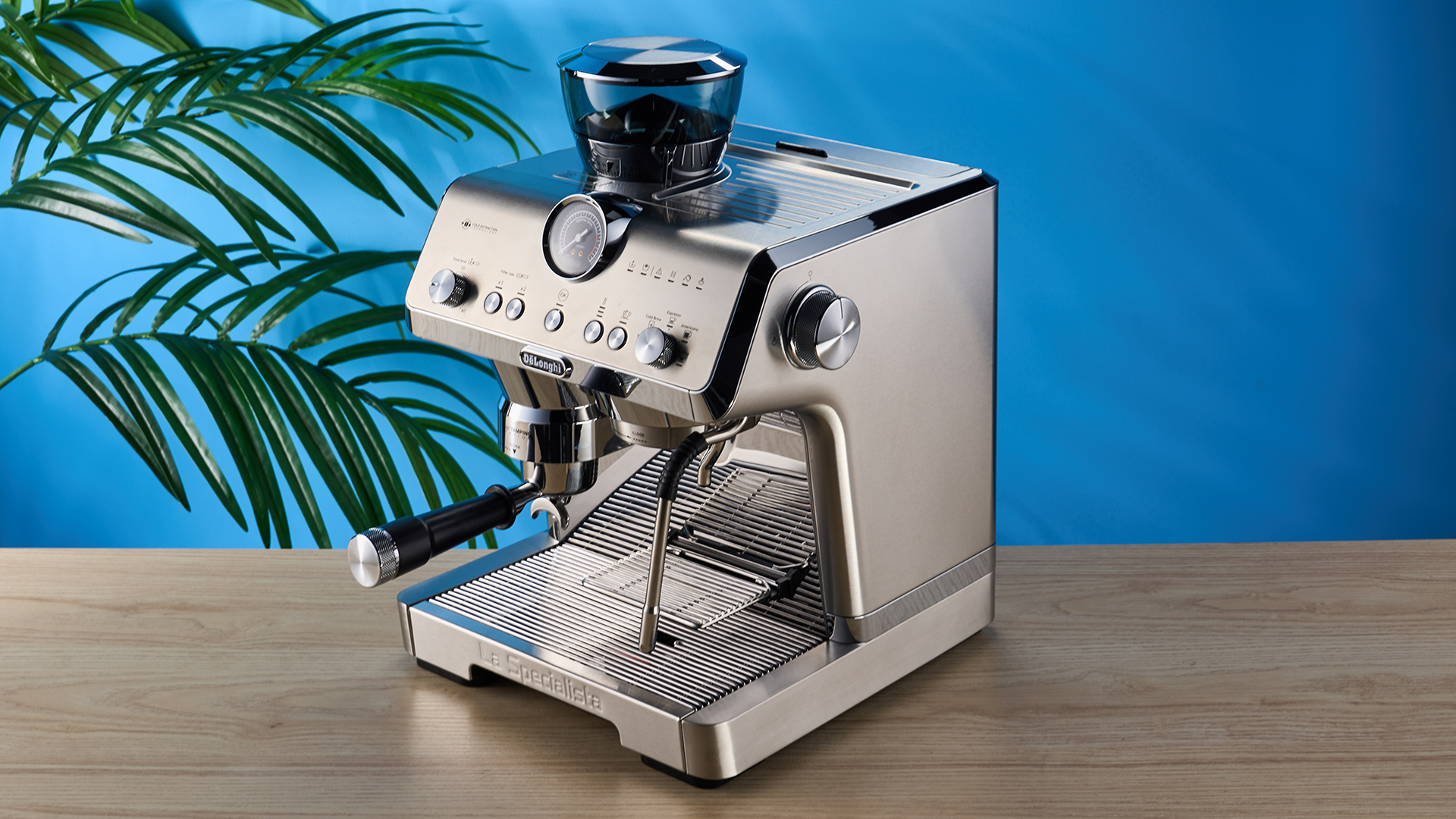
While, yes, $899 is an objectively large amount of money, this isn’t the most expensive coffee machine I’ve ever seen. The Specialista Opera might have a small learning curve, but if you’re even a little bit ‘into’ coffee, you’ll imbue yourself with a grimoire of knowledge, and you’ll be all the better off for it.







